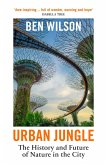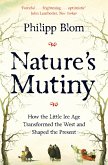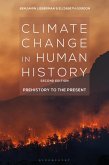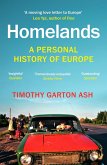Ever since innovations in agriculture vastly expanded production of the staples of food energy, our remarkable achievements in reshaping nature have brought about an overwhelming expansion in the life chances of billions of people. Yet every technological innovation has also empowered humans to exploit each other and the planet with devastating brutality, twinning the stories of environment and of Empire, genocide and eco-cide, as with Spanish silver mining in Peru and British gold mining in South Africa.
After the age of empire, new nations raced to make up lost ground, expanding human freedom at devastating ecological cost. Amrith's environmental lens provides an essential new way of understanding war: as a massive reshaping of the earth through the global mobilization of natural resources, those resources including humans themselves. He also makes clear that migration is often a consequence of environmental harm.
Reinterpreting a history previously seen from a Euro-and-anthropocentric viewpoint, Amrith relates in brilliant prose, and on the largest canvas, a magisterial, mind-altering epic - vibrant with stories, characters, vivid images and rich archival resources.
Dieser Download kann aus rechtlichen Gründen nur mit Rechnungsadresse in A, B, BG, CY, CZ, D, DK, EW, E, FIN, F, GR, HR, H, IRL, I, LT, L, LR, M, NL, PL, P, R, S, SLO, SK ausgeliefert werden.









